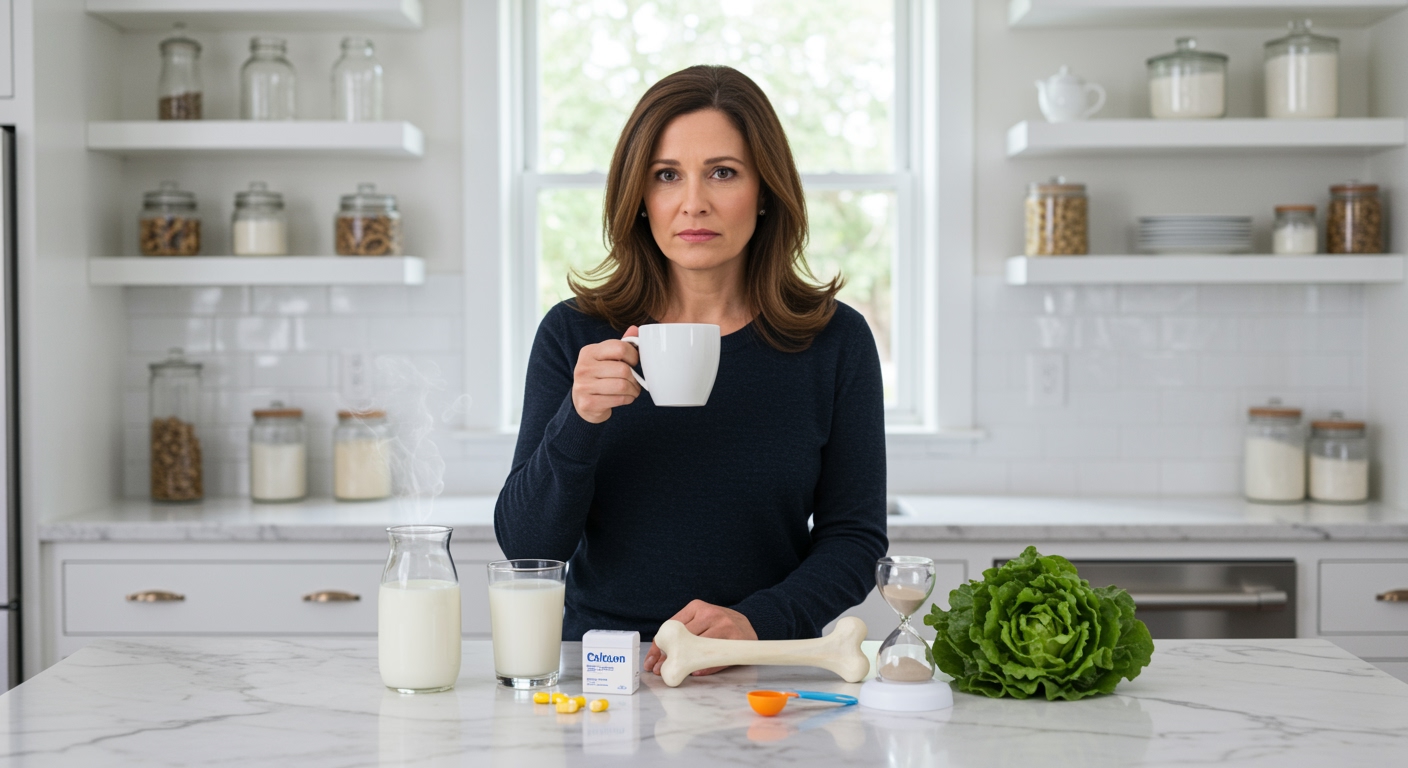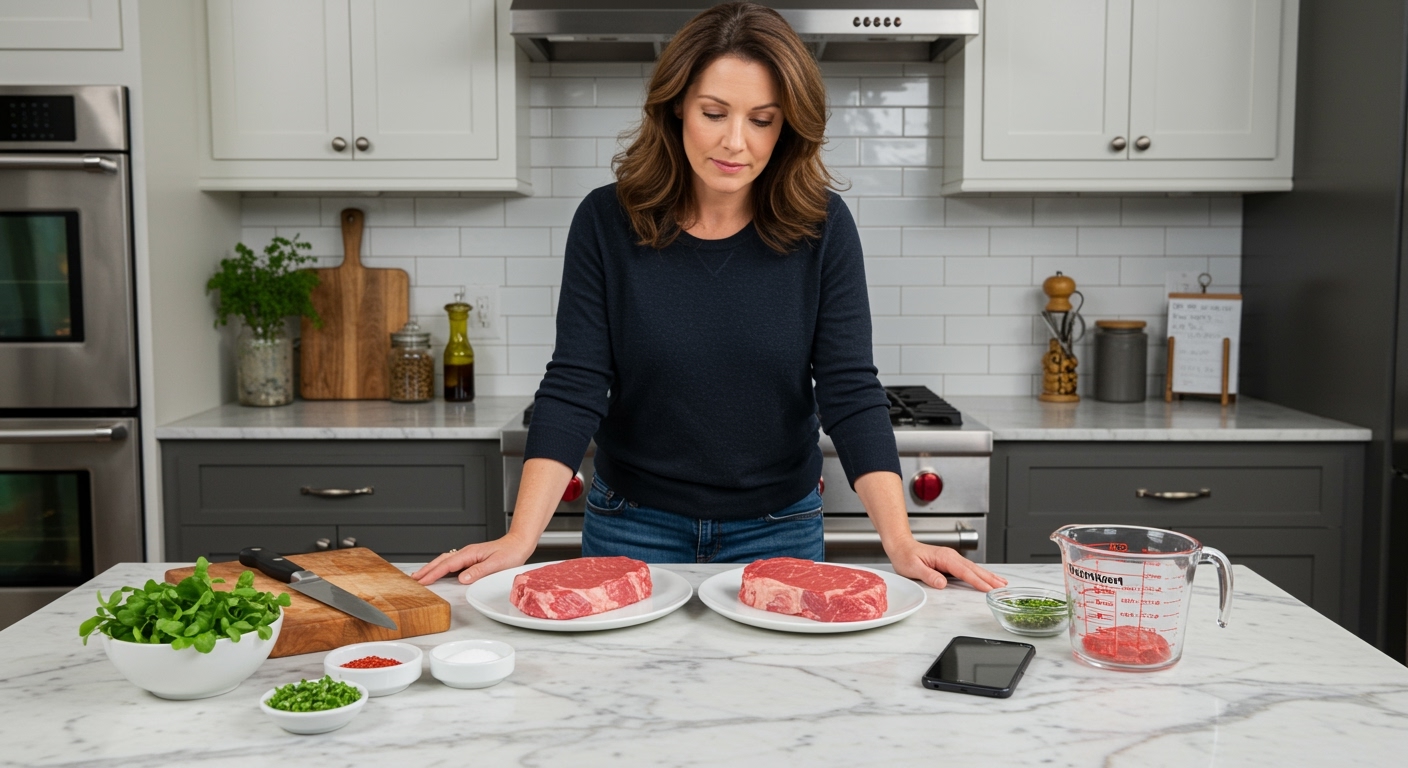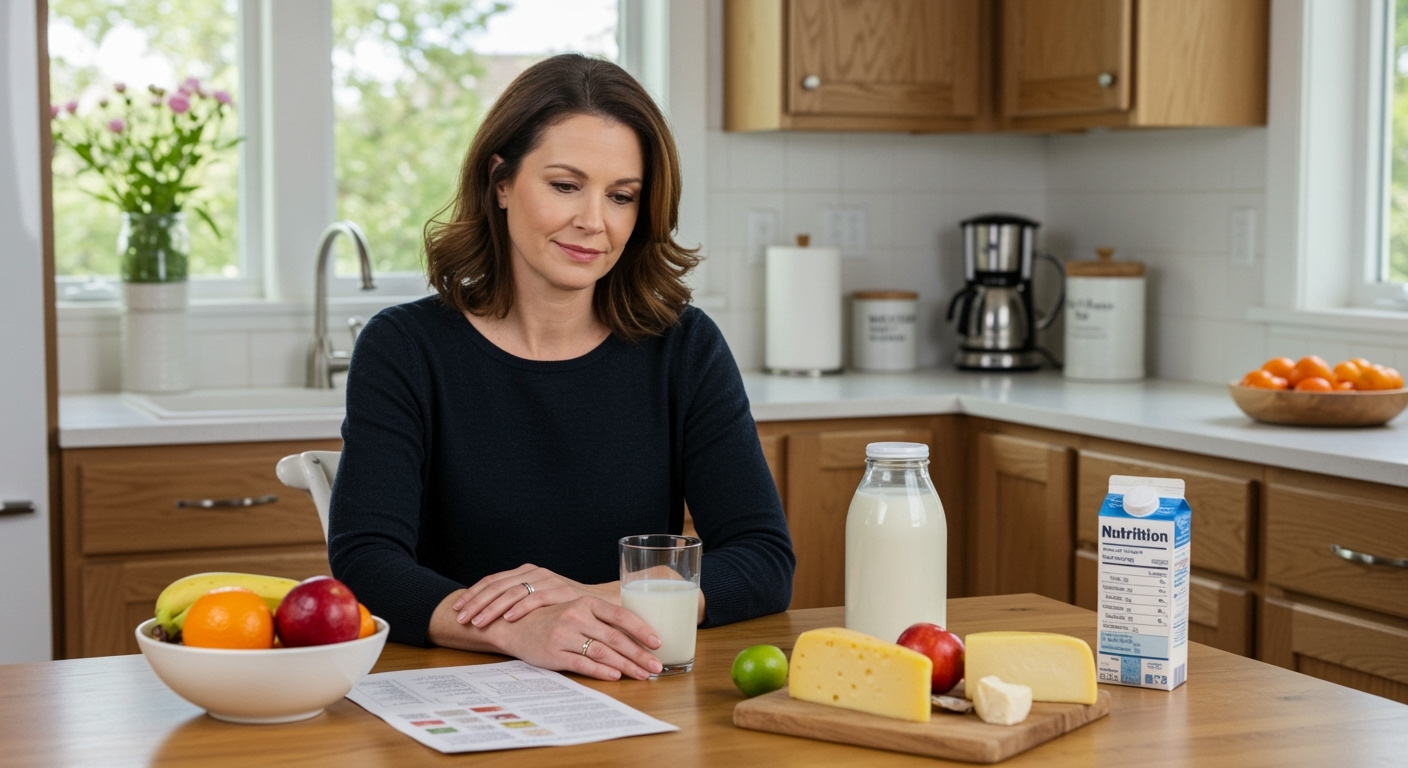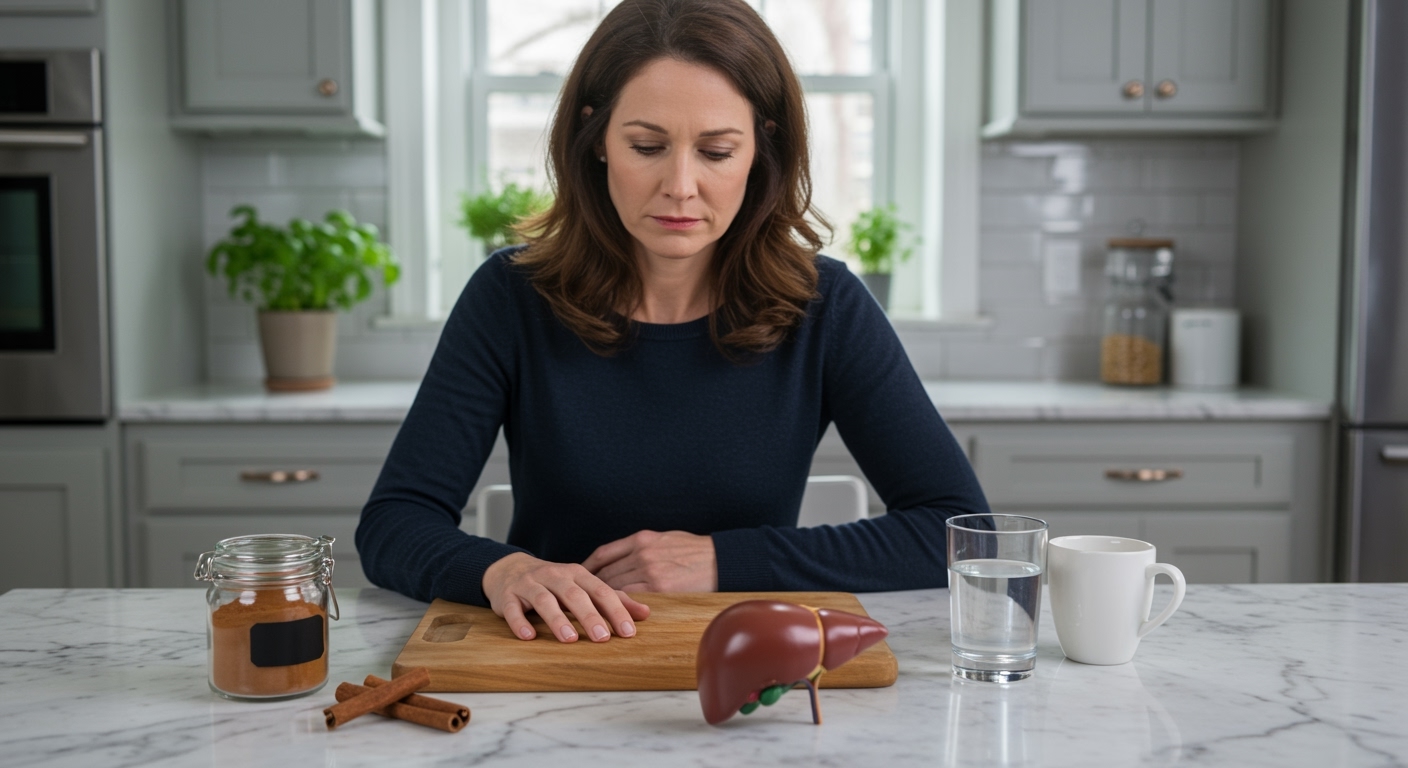✪ Key Takeaway: Coffee blocks calcium absorption and accelerates bone mineral loss through multiple mechanisms.
Introduction
Your morning coffee ritual feels harmless enough.
You wake up, brew your favorite blend, and start your day with that familiar caffeine boost. But beneath this comforting routine lies a silent threat to your skeletal system that most people never consider.
Hi, I’m Abdur, your nutrition coach and today I’m going to explain how your beloved coffee habit is systematically weakening your bones and what you can do to protect yourself.
How Does Caffeine Block Calcium Absorption?
Caffeine creates a biochemical interference in your digestive system that prevents calcium from entering your bloodstream.
When you drink coffee, caffeine binds to adenosine receptors in your intestinal walls. This binding process disrupts the normal transport mechanisms that move calcium molecules from your gut into your blood circulation.
Research shows that consuming 150mg of caffeine reduces calcium absorption by approximately 5-10 milligrams. That might sound small, but this loss compounds daily over months and years.
Your body requires roughly 1000-1200mg of calcium daily for optimal bone health. When caffeine consistently blocks even small amounts of calcium absorption, you create a negative calcium balance that forces your body to steal calcium from your bones.
The timing of your coffee consumption matters significantly. Drinking coffee with calcium-rich meals creates the most dramatic reduction in calcium uptake because the caffeine directly competes with calcium for absorption pathways.
Studies demonstrate that people who drink coffee within two hours of eating dairy products or calcium supplements absorb 20-30% less calcium than those who separate these consumptions.
✪ Pro Tip: Wait at least 2 hours after drinking coffee before taking calcium supplements or eating dairy products.
What Happens To Your Bones When Calcium Gets Depleted?
Your bones function as your body’s calcium bank account, and caffeine forces constant withdrawals without adequate deposits.
When blood calcium levels drop due to poor absorption, your parathyroid glands release parathyroid hormone. This hormone signals specialized cells called osteoclasts to break down bone tissue and release stored calcium into your bloodstream.
Initially, this process maintains normal blood calcium levels and prevents immediate health problems. However, chronic calcium depletion creates an imbalance where bone breakdown exceeds bone formation.
Your bones contain approximately 99% of your body’s total calcium supply. When dietary calcium absorption remains consistently low, your skeletal system becomes the primary source for maintaining blood calcium homeostasis.
This bone mineral loss occurs gradually and silently. You won’t feel your bones weakening day by day, but bone density scans reveal the cumulative damage over time.
Research indicates that postmenopausal women who consume more than 300mg of caffeine daily show significantly lower bone mineral density in their spine and hip regions compared to low-caffeine consumers.
The process accelerates after age 30 when natural bone formation begins declining. Adding caffeine-induced calcium malabsorption to age-related bone loss creates a double threat to your skeletal health.
✪ Fact: One cup of coffee can increase calcium excretion in urine by 2-3mg for every 6 hours.
Why Do Some People Experience Worse Bone Loss Than Others?
Individual responses to caffeine vary dramatically based on genetic factors and lifestyle choices.
Your liver produces enzymes called cytochrome P450 that metabolize caffeine. People with genetic variations in these enzymes process caffeine at different rates, affecting how long caffeine interferes with calcium absorption.
Fast metabolizers clear caffeine from their systems within 2-3 hours, while slow metabolizers may experience caffeine effects for 6-8 hours. Slow metabolizers face prolonged periods of impaired calcium absorption with each cup of coffee.
Age significantly influences caffeine sensitivity and bone health vulnerability. Older adults produce less stomach acid, which reduces calcium absorption even without caffeine interference.
Women face additional risks due to hormonal changes during menopause. Estrogen deficiency accelerates bone loss while simultaneously increasing caffeine sensitivity in many women.
Your overall diet quality determines how well you can compensate for caffeine-induced calcium losses. People consuming adequate calcium from multiple sources throughout the day show less bone density decline than those with marginal calcium intake.
Vitamin D status plays a crucial role because this vitamin enhances calcium absorption. People with vitamin D deficiency experience more severe bone loss when consuming high amounts of caffeine.
✪ Note: Women over 50 who drink more than 4 cups of coffee daily have 2-3 times higher fracture risk.
How Much Coffee Is Too Much For Your Bones?
The relationship between coffee consumption and bone loss follows a dose-dependent pattern.
Research consistently shows that consuming more than 400mg of caffeine daily significantly increases bone loss rates. This equals approximately four 8-ounce cups of regular brewed coffee.
However, bone health effects begin appearing at much lower consumption levels. Studies document measurable calcium losses starting at just 150mg of caffeine per day, which equals about one large coffee shop serving.
The timing and frequency of consumption matter as much as total daily intake. Drinking multiple small cups throughout the day creates sustained calcium absorption interference compared to consuming equivalent caffeine in one sitting.
Different coffee preparations contain varying caffeine levels. Espresso-based drinks, cold brew, and dark roasts typically contain higher caffeine concentrations than regular drip coffee.
Your individual tolerance depends on body weight, metabolism, and existing health conditions. Smaller individuals and those with slower caffeine metabolism experience bone health effects at lower consumption levels.
Long-term studies reveal that people consuming more than 300mg of caffeine daily for over 10 years show significant bone density reductions compared to moderate consumers.
✪ Pro Tip: Limit coffee to 2 cups daily and consume them before noon to minimize bone health impact.
What Can You Do To Protect Your Bones While Drinking Coffee?
You don’t need to eliminate coffee completely, but strategic modifications can minimize bone damage.
Increase your calcium intake to compensate for caffeine-induced losses. Aim for 1200-1500mg of calcium daily if you consume regular amounts of coffee, which is 200-300mg above standard recommendations.
Time your calcium consumption carefully. Take calcium supplements or eat calcium-rich foods at least two hours before or after drinking coffee to maximize absorption.
Add milk or calcium-fortified plant milk to your coffee. While caffeine still interferes with calcium absorption, having calcium present in the same beverage provides some compensation for the losses.
Ensure adequate vitamin D intake through sunlight exposure, supplements, or fortified foods. Vitamin D enhances calcium absorption and helps counteract caffeine interference.
Consider switching to lower-caffeine alternatives like green tea, which contains beneficial compounds for bone health while providing less caffeine per serving.
Engage in regular weight-bearing exercise, which stimulates bone formation and helps maintain bone density despite dietary challenges. Activities like walking, dancing, and resistance training provide mechanical stress that strengthens bones.
✪ Fact: Adding 2 tablespoons of milk to coffee provides about 40mg of calcium to help offset caffeine losses.
The Bottom Line
Your morning coffee habit creates a hidden threat to your bone health through multiple mechanisms that compound over time.
Small daily losses become major problems when they accumulate over decades, but awareness and strategic modifications can help you enjoy coffee while protecting your skeletal system.
I’d love to hear about your coffee habits and any concerns you have about bone health. Share your thoughts in the comments below and let me know if you have questions about balancing your caffeine intake with optimal nutrition.
References
At NutritionCrown, we use quality and credible sources to ensure our content is accurate and trustworthy. Below are the sources referenced in creating this article:
- PubMed: Caffeine intake and bone mineral density
- Theros: Are there any foods I should avoid for bone health
- Gulhane Medical Journal: Caffeine intake and bone mineral density in postmenopausal women
- MDPI Nutrients: Caffeine and bone health research
- Medical News Today: Caffeine and osteoporosis connection





